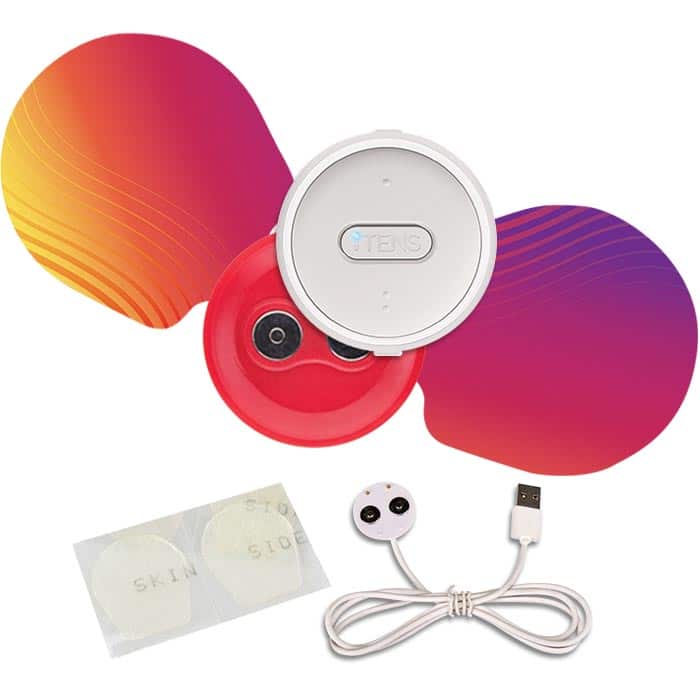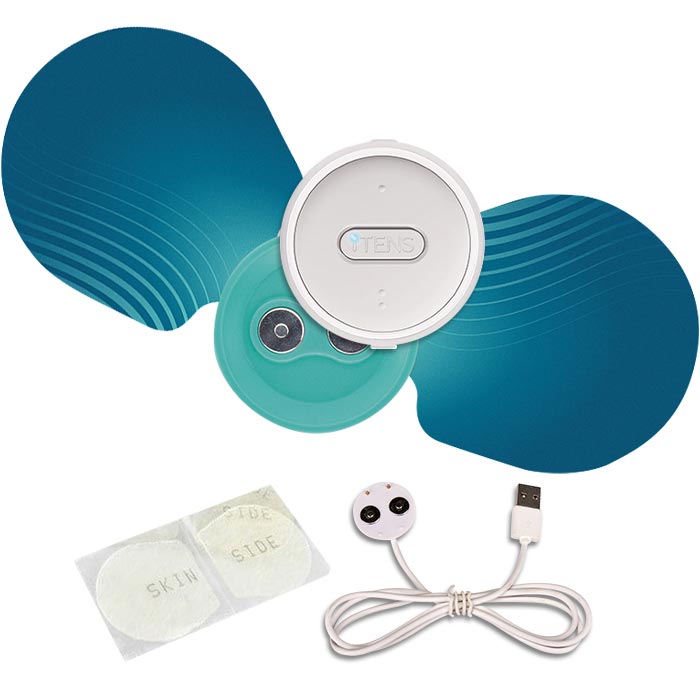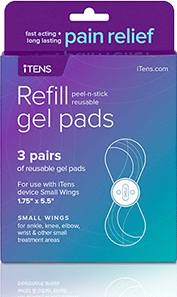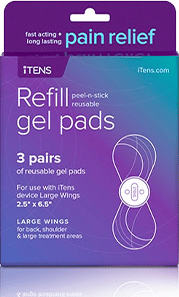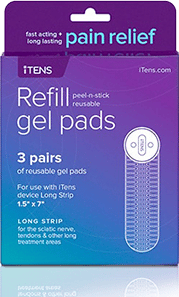
A calf strain can be debilitating and impact daily activities. Fortunately, there is a Transcutaneous Electrical Nerve Stimulation or TENS machine for calf pain. It is a pain therapy that uses a device to deliver electrical impulses. Consequently, this electrical stimulation works by blocking the pain signals, prompting the release of endorphins, and promoting blood supply. Nevertheless, it is easy to use the device. Locate the area of the calf experiencing discomfort, place the adhesive electrodes, and adjust the settings.
Chronic or acute calf strain can be a common occurrence for many individuals. Whether it is due to high-intensity activity, injury, or even an underlying medical condition. Traditional treatment options like drug pain treatment, calf strain physical therapy, and calf strengthening exercises may not always provide the demanded pain relief. Hence, people seek alternative methods like TENS therapy. This article will present a TENS unit for calf pain, including how it works and how to use it.
What is a TENS Machine for Calf Pain?
Calf injuries are a common issue that may arise from muscle strain or overuse. It can affect people who engage in athletic training and physical activities. Nevertheless, healthcare providers and physical therapists often recommend using a TENS machine for calf pain. It is a battery-powered device that sends electrical pulses via electrode pads placed on the skin.
The TENS device comes in two types: wired and wireless. Wired TENS units utilise physical wires to attach the electrodes to the central machine. On the other hand, wireless TENS units eliminate the need for lead cables. This offers flexibility and greater freedom of movement. Users can control the medical treatment manually or on a smartphone through Bluetooth technology.
Furthermore, the features of TENS machines may vary. However, most devices offer adjustable settings. This enables people to modify the frequency, intensity, and duration of electrical pulses. Some units also include pre-set programs. This is designed to target specific types of conditions like joint pain and knee pain, including calf discomfort.
Causes of Calf Pain
- Calf muscle strain: calf discomfort can occur due to muscle strain from high-exertion activities, tight muscles, or sudden forceful movements.
- Nerve compression: compression of the nerves in the lower back can cause radiating discomfort into the calf.
- Deep Vein Thrombosis (DVT): blood clots in the deep veins of the legs can cause calf strain.
- Tendon or ligament injury: strains or sprains involving the tendons and ligaments in the calf can lead to discomfort.
- Medical conditions: certain medical conditions, such as muscle cramps caused by dehydration or electrolyte imbalances, may lead to sudden or intense pain.

How a TENS Machine for Calf Pain Works
Generally, a TENS machine for calf pain works by streaming electrical impulses to the body through electrodes. Accordingly, this harnesses the natural mechanisms of the body. Foremost, TENS therapy can stimulate the release of endorphins. These are the natural chemicals of the body that act as natural painkillers. Hence, it provides relief and promotes comfort in the calf region.
Secondly, TENS operates based on the Pain Gate Theory. According to this, the spinal cord has a “gate” that can either allow or block pain messages from reaching the brain. The electrical stimulation from TENS can activate the sensory nerves. This can subsequently close the “gate” and inhibit the transmission of pain signals. As a result, the perception of calf discomfort can be reduced or modulated.
TENS therapy can also contribute to improved blood circulation in the calf area. The electrical currents may cause blood vessels to dilate. This enhances blood flow to the muscles and tissues. Nevertheless, this can promote the delivery of oxygen and nutrients to the treatment area. Also, this activity can aid in the removal of metabolic byproducts and toxins that might contribute to calf discomfort.
Benefits of Electrotherapy
A significant benefit of TENS is its ability to deliver targeted relief. The electrodes can be strategically placed on the calf muscles, allowing for effective stimulation. Subsequently, TENS therapy is non-invasive and drug-free. It does not require any invasive techniques or the intake of medications. Also, TENS machines offer customisable settings. This tailors the therapy to suit specific needs.
The portability of TENS units is another notable benefit. This allows people to use it at home, work, or on the go. Furthermore, TENS therapy is a cost-effective pain management option. It eliminates the ongoing cost of medications, frequent visits to doctors, or surgical procedures.
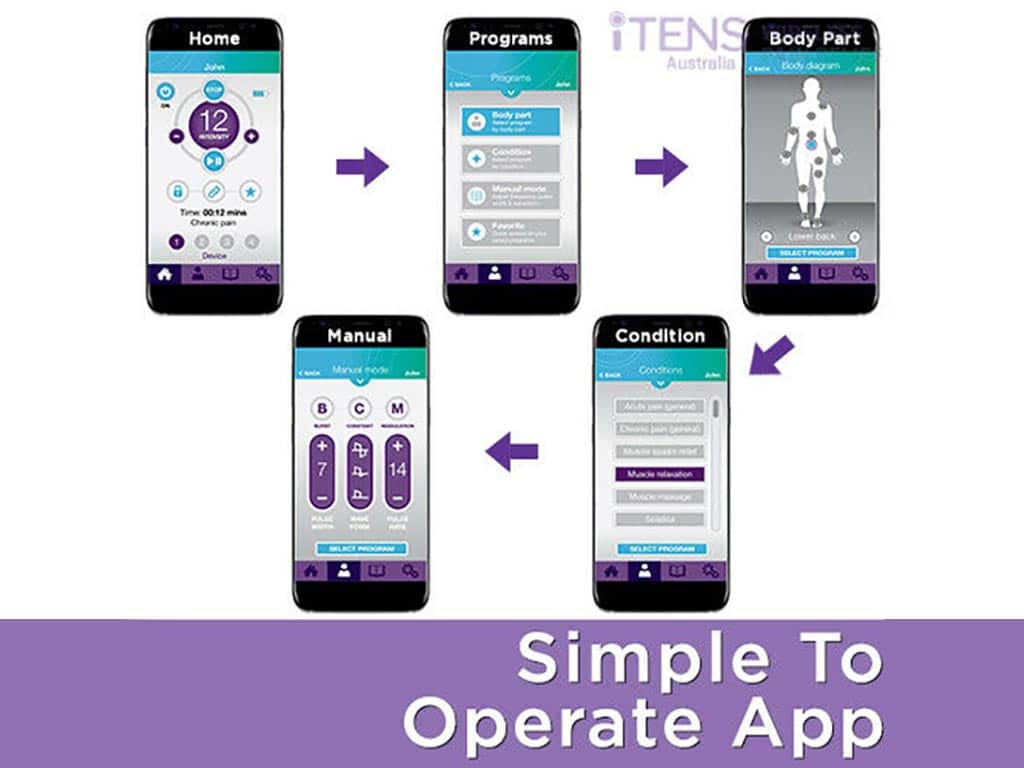
How to Use a TENS Machine for Calf Pain
Using a TENS machine for calf pain is relatively straightforward. Before initiating TENS therapy, it is vital for individuals to consult a health professional. This is particularly important for people with underlying medical conditions. Once cleared, prepare the TENS unit. Connect the electrodes to the central machine using lead cables or to a smartphone via Bluetooth for wireless.
Then, identify the specific area of the calf experiencing discomfort. Place the electrode pads following the proper pad placement. Once the electrodes are in place, turn on the TENS machine. This may initiate adjusting the settings or choosing a pre-set program. Nevertheless, it is essential to start with a low setting and gradually increase it to a comfortable level.
After configuring the settings, initiate the therapy by activating the TENS unit. A tingling or tapping sensation may occur as the electrical stimulation is delivered to the calf muscles. Furthermore, the duration of the treatment may last 15 to 30 minutes. Once the therapy session is complete, turn off the TENS machine and carefully remove the electrode patches.
Electrode Placement Guide
Foremost, locate the specific area of the calf experiencing pain. This can include regions affected by muscle tightness or other sources of discomfort. Next, clean the skin and make sure that it is free from open wounds. Then, place the electrodes. Generally, for calf pain, it is common to place the pads above and below the area of discomfort.
When applying the electrode pads, it is essential to ensure proper spacing. This is to cover the entirety of the affected region. After placing the pads, the user should assess the comfort and effectiveness of the stimulation. If necessary, they can make minor adjustments.
Conclusion
The common causes of calf discomfort include muscle strain, nerve compression, DVT, and medical conditions. Fortunately, there is a TENS machine for calf pain. It is a wired or wireless device that delivers electrical pulses to the body via electrodes placed on the skin. Accordingly, it works by blocking the transmission of pain signals, prompting the production and release of endorphins, and promoting blood circulation. These mechanisms can reduce the perception of discomfort and induce a sense of well-being.
Furthermore, TENS therapy offers various benefits. It is non-invasive, drug-free, customisable, portable, cost-effective, and provides targeted relief. Using the device is relatively straightforward. One needs to prepare the TENS machine. Then, locate the specific area of calf pain and place the electrodes. Once done, turn on the unit and adjust the settings. Nevertheless, proper electrode placement is crucial in the therapy. Those who want to purchase a TENS machine may check out the online retailer iTENS Australia.



